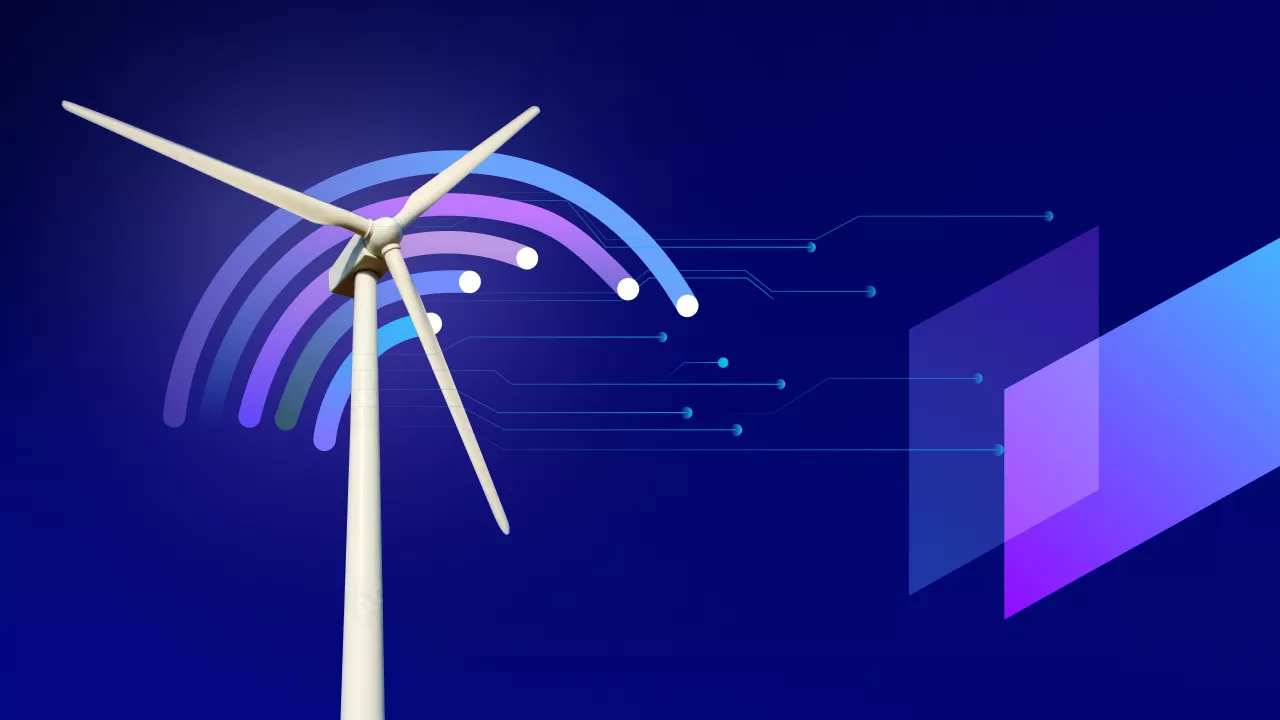The Power of Data Visualization Using Tableau
Making digital transformation a reality in the Energy Industry
Historically, the energy sector has pioneered the adoption of digital technologies. Even in the early 1970s, oil and gas companies and electricity providers utilized emerging technologies to streamline grid management, simulate exploration of energy sources, and improve production assets. Even today, digital transformation is a key driver for improving the efficiency, reliability, sustainability, resilience, and safety of this sector.
Technological advancements in the recent past have significantly impacted how energy is produced, transmitted, and consumed. Additionally, digital transformation has helped this sector address challenges associated with increasing demand, exploration of renewable energy sources, and legacy infrastructure. It has also immensely increased consumer convenience. For example, now mobile energy apps provide real-time energy consumption statistics and information to consumers. With these statistics, they can reduce their energy usage and energy bills.
The use of digital billing and online payment systems has made the billing process cost and time-efficient. The emergence of new business models is another positive impact of digital transformation in the energy sector. Further digitalization is predicted to save the energy sector approximately 5% of its total annual energy-generating costs by reducing:
- Operating and maintenance expenses
- Unexpected outages and downtime
- Improving energy plant and network efficiency
The use of drones to monitor the great expanse of transmission cables spread across diverse, rugged terrains is an excellent example of the convenience this sector enjoys due to its enthusiastic adoption of digitization. However, this adoption has the potential to trigger more fundamental, system-wide workflow changes by dismantling conventional demand and supply limits. But these new avenues have yet to be explored.
Energy Sector Digital Transformation Drivers
The primary goals of almost all businesses range from increasing economic benefits to revenue growth. Adopting emergent digital technologies can fulfill all these goals for energy sector companies. While this is a major driver for digital transformation in the energy sector, a combination of other factors also contributes to the unabashed adoption of digital by this sector. These include:
- Increased renewable energy demand
- Customer satisfaction
- Ever-evolving customer expectations
- Poor ROI of aging infrastructure
- Regulatory requirements
- Energy and cost efficiency
- Increased cut-throat competition

The need to achieve environmental goals and reduce their carbon footprint makes renewable energy another important driver of digital transformation. Using technology, the energy sector companies can reduce costs and improve efficiency by optimizing the placement and operation of solar panels and wind turbines.
It is imperative to mention the criticality of customer satisfaction in promoting consistent growth of the energy sector. With companies in this sector competing fiercely to enable enhanced customer satisfaction and convenience, as consumer needs and expectations have changed. Conventionally, consumer demands hovered around cheaper and more accessible energy products. Now the requirements range from climate-friendly energy to cost transparency. The integration of Smart meters and conversion into smart homes assist them in meeting these goals by creating transparency and identifying energy-saving opportunities.
Further, artificial neural networks(ANNs) can help energy industry companies anticipate consumer preferences and offer personalized services. By integrating ANNs into online consumer portals, businesses can automate repetitive tasks such as customer service inquiries, billing, and shipping. Reducing response TAT will help boost customer satisfaction and reduce costs.
Barriers to Digital Transformation in Energy Sector
The road to energy sector digital transformation strategies is not without challenges. Organizing a qualified and digitally-skilled workforce is a primary hurdle from the managerial perspective. Regardless of their role in the organization, all employees must acquire digital knowledge and skills to maximize the benefits of this transformation.
A well-defined digital strategy is another vital requirement. Most digital transformation processes do not attain the desired level of success because of improperly designed digital strategies. Purchasing, implementing, and using the latest digital technologies require substantial investment capital. Such a huge financial requirement often faces resistance at various management levels.
Other barriers faced by the energy industry while implementing digital transformation include poor data quality and consistency, siloed data systems, incompatible legacy systems, and cybersecurity. The success of the energy sector's digital transformation relies heavily on the support and involvement of the government. This presents this sector with challenges from certain external factors like inadequate legal frameworks, compliance gaps, governmental limitations, and a dearth of industry-specific guidelines for transformation, to mention a few.

Important Digital Transformation Trends of the Energy sector
An exponential increase in energy demand and changing consumer expectations have made this sector more competitive, complex, and unpredictable. To improve sustainability and remain competitive, the energy sector needs to capitalize on three important digital transformation trends. They include:
IoT
Internet of Things or IoT technology is used in several areas within the energy sector, including smart grids, energy management systems, renewable energy monitoring, energy storage, and predictive maintenance. IoT sensors being deployed across the energy grid help monitor and report real-time consumption, generation, and distribution of energy. Analyzing this data can help to optimize the power grid, minimize energy waste, and prevent power outages.
Energy management systems use IoT devices to monitor and control energy consumption in commercial and residential locations. These systems use occupancy and weather data to adjust lighting/temperature settings to optimize energy efficiency automatically. Moreover, IoT sensors also play a significant role in monitoring and analyzing the performance of renewable energy sources like solar and wind power. The data gathered is used to optimize their performance and ensure efficient energy production.
IoT sensors can also be used in predictive maintenance to help identify when maintenance is necessary for energy equipment such as turbines, transformers, and generators. This predictive maintenance ensures that these critical components continue to perform optimally, reducing downtime and increasing efficiency. The use of IoT technology in the energy sector is resulting in significant benefits such as reduced energy waste, enhanced efficiency, and cost savings. With more devices becoming connected and innovative new applications being developed, IoT usage in the energy sector is expected to grow further in the coming years.
AI and Advanced Analytics
Energy industry companies are using advanced analytics and ML algorithms to predict equipment failures and schedule maintenance proactively, resulting in reduced downtime and costs. Further, capitalizing on the digital twin technology helps them create virtual replicas of physical assets, such as turbines and generators, to simulate performance and predict potential failures accurately.
AI and ML also play a significant role in the smart grid by analyzing data to understand power usage, identify trends, and enable the energy industry to make informed decisions about power generation and distribution. Renewable energy sources like solar and wind power can be integrated into the energy grid using AI and ML. These technologies can optimize the performance of renewable energy systems by forecasting energy production and consumption in real-time. By matching renewable energy output with the demand for electricity, grid operators can reduce the need for fossil fuels and improve the efficiency of the power grid.
Automation
Implementing automation in the energy industry can have a myriad of benefits, ranging from improving safety protocols to boosting efficiency and reducing errors. Automated systems can significantly reduce manual efforts, streamline routine tasks, and help companies save expenses associated with manual labor while ensuring better accuracy in their operations.
Smart automation solutions can maintain and update security systems and networking hardware and software, thus creating a safer environment for employees and consumers. They can also gather customer feedback and monitor energy consumption levels. By leveraging powerful insights from automated data analysis and decision-making activities, businesses can develop strategies for improving production operations, customer engagement, and staying ahead of supply-side issues.
Investing in automated systems for tasks linked to market trends enables firms to meet market demands within shorter time horizons, cut costs and maximize short-term savings without sacrificing long-term benefits. Automation also allows companies to analyze their current performance and pinpoint areas for improvement where necessary.
Conclusion
Achieving energy efficiency is crucial for reducing energy consumption and greenhouse gas emissions. Implementing the latest technologies to create efficient energy management systems can automate energy consumption and optimize usage. It can also address the depletion of energy-producing raw materials by creating a healthy balance between renewable and non-renewable energy.
Email us or Talk to us at +91-98367-81929 or Simply Contact Us through the website.
Let's Connect








